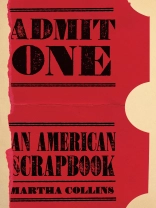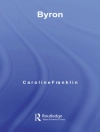In Admit One: An American Scrapbook, Martha Collins relentlessly traces the history of scientific racism from the 1904 St. Louis World’s Fairthrough the eugenics movement of the 1920s. Using a wide variety of documentary sources, including her Illinois grandfather’s newspaper, Collins constructs a ’scrapbook‘ of fragments, quotations, narrative passages, and lyrical riffs that reveal startling connections between the Fair, the Bronx Zoo, and ideas that culminated in anti-immigration, anti-miscegenation, and eugenic sterilization laws in 1924. Among the book’s recurring elements are evolving portraits of the ‚exhibited‘ African Ota Benga, the sterilization victim Carrie Buck, and the eugenicist Madison Grant, whose reach extended to Nazi Germany. Following the practice begun in her book-length poem Blue Front and continued in her exploration of race in White Papers, Collins combines careful research with innovative poetic techniques to create an arresting account of a segment of American history that haunts us even today. Admit One is a brilliant, troubling, necessary read.
Über den Autor
Martha Collins is the author of ten previous collections of poetry, most recently Because What Else Could I Do, which won the Poetry Society of America’s William Carlos Williams Award. Previous volumes include Blue Front, White Papers, Admit One: An American Scrapbook, and the paired volumes Day unto Day and Night unto Night. She has also cotranslated four volumes of Vietnamese poetry and coedited several anthologies.












